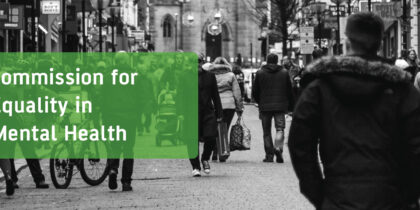Today’s rapid evidence review from the Race and Health Observatory on ethnic inequalities in health care sets out clear and compelling evidence that unequal treatment is system-wide, entrenched and deeply harmful.
In mental health care, the review draws together evidence of unequal treatment from children’s mental health services, adult talking therapy (IAPT) services and specialist mental health services. This is not new information: it has been known for a long time. Yet little has happened to change the systems that lead to poorer access, experience and outcomes.
The report concludes that unequal experiences of health care are “rooted in experiences of structural, institutional and interpersonal racism”. It’s vital that this is acknowledged and acted on. Denial of the impacts of racism on health care risks perpetuating inequalities and injustices.
The review finds that data from mental health services provides an inadequate picture of people’s experiences and calls for significant improvement. This is one of the priorities in NHS England’s Advancing Mental Health Equalities strategy. It must be implemented at every level so commissioners, communities and citizens have a clearer picture of what’s happening and where improvement is most needed.
The review also calls for NHS investment in partnerships with community-led organisations to help to build trust. This was a key recommendation in our Breaking the Circles of Fear report 20 years ago this year. It continues to be urgently needed.











